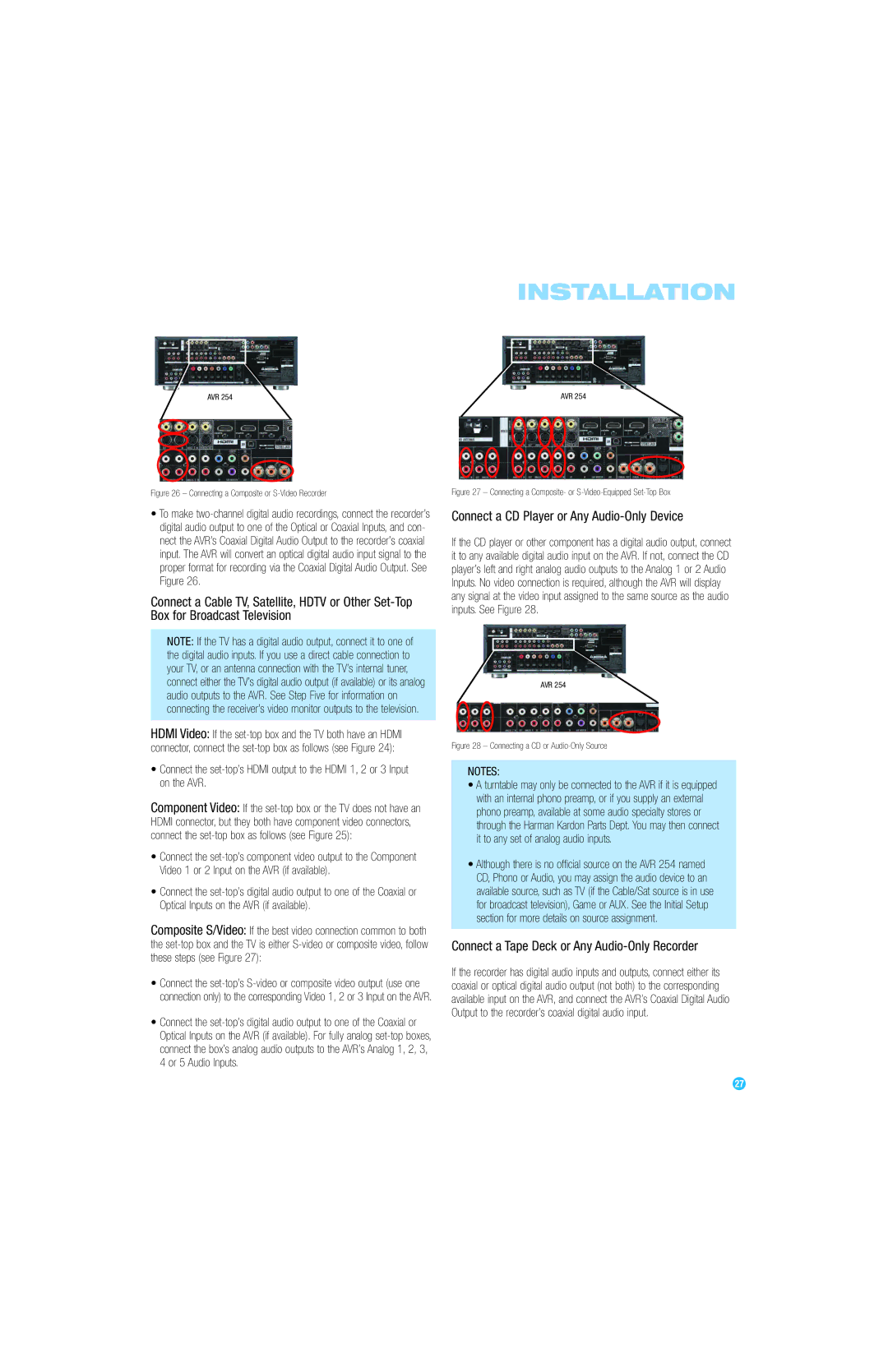
INSTALLATION
AVR 254 | AVR 254 |
Figure 26 – Connecting a Composite or S-Video Recorder
•To make two-channel digital audio recordings, connect the recorder’s digital audio output to one of the Optical or Coaxial Inputs, and con- nect the AVR’s Coaxial Digital Audio Output to the recorder’s coaxial input. The AVR will convert an optical digital audio input signal to the proper format for recording via the Coaxial Digital Audio Output. See Figure 26.
Connect a Cable TV, Satellite, HDTV or Other
NOTE: If the TV has a digital audio output, connect it to one of the digital audio inputs. If you use a direct cable connection to your TV, or an antenna connection with the TV’s internal tuner, connect either the TV’s digital audio output (if available) or its analog audio outputs to the AVR. See Step Five for information on connecting the receiver’s video monitor outputs to the television.
HDMI Video: If the
•Connect the
Component Video: If the
•Connect the
•Connect the
Composite S/Video: If the best video connection common to both the
•Connect the
•Connect the
Figure 27 – Connecting a Composite- or S-Video-Equipped Set-Top Box
Connect a CD Player or Any Audio-Only Device
If the CD player or other component has a digital audio output, connect it to any available digital audio input on the AVR. If not, connect the CD player’s left and right analog audio outputs to the Analog 1 or 2 Audio Inputs. No video connection is required, although the AVR will display any signal at the video input assigned to the same source as the audio inputs. See Figure 28.
AVR 254
Figure 28 – Connecting a CD or Audio-Only Source
NOTES:
•A turntable may only be connected to the AVR if it is equipped with an internal phono preamp, or if you supply an external phono preamp, available at some audio specialty stores or through the Harman Kardon Parts Dept. You may then connect it to any set of analog audio inputs.
•Although there is no official source on the AVR 254 named CD, Phono or Audio, you may assign the audio device to an available source, such as TV (if the Cable/Sat source is in use for broadcast television), Game or AUX. See the Initial Setup section for more details on source assignment.
Connect a Tape Deck or Any Audio-Only Recorder
If the recorder has digital audio inputs and outputs, connect either its coaxial or optical digital audio output (not both) to the corresponding available input on the AVR, and connect the AVR’s Coaxial Digital Audio Output to the recorder’s coaxial digital audio input.
27
